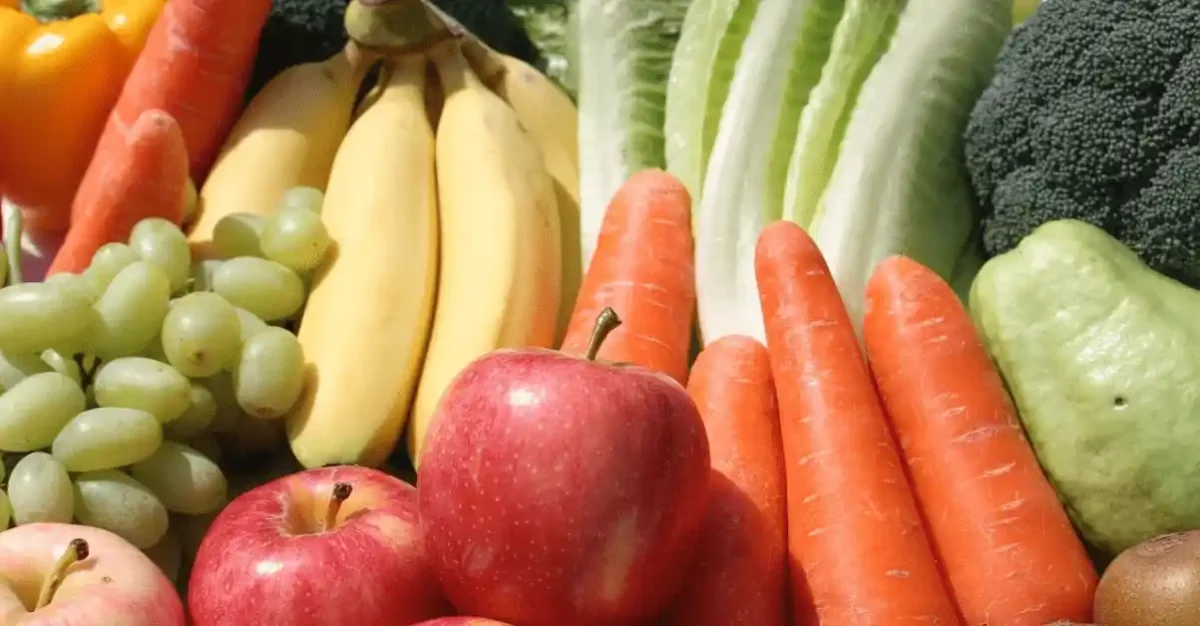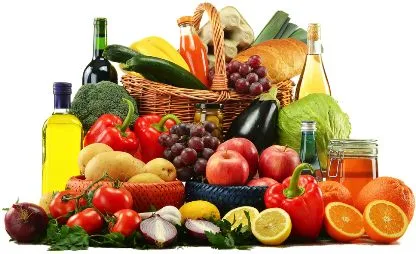
Radically change your diet
A plant-based diet is a powerful way to reduce cancer risk. And for people who have been diagnosed with cancer, it is an important way to improve survival.
Physicians Committee for Responsible Medicine
Table of Contents
Why you need to radically change your diet
Cancer Stem Cells are the only cells that can give rise to new tumors. There is no known way of eliminating them. This is why cancers usually recur (come back).
However, Dr Young S. Kim, a scientist at the National Cancer Institute in the US showed that poor diet causes cancer stem cells to regrow while a good diet could stop that regrowth.
This American Cancer Society study found that Colorectal cancer patients who improve their diet and lifestyle survive longer with a 42% reduced risk of death than those who do not make the changes.
Ideally you should eat a low fat, whole foods, plant based diet. This will ensure that you exclude the foods that feed your cancer, while eating foods that strengthen your immune system.
American Association for Cancer Research
A plant-based diet is a powerful way to reduce cancer risk.
And for people who have been diagnosed with cancer,
it is an important way to improve survival.
Source: Physicians Committee for Responsible Medicine
A plant-based diet consists of exclusively plant foods, including fruit, vegetables, grains, and legumes, and avoids meat, dairy, and eggs. Plant-based foods are full of fiber, rich in vitamins and minerals, free of cholesterol, and low in calories and saturated fat. Eating a variety of these foods provides all the protein, calcium, and other essential nutrients your body needs. It’s important to include a reliable source of vitamin B12 in your diet. You can easily meet your vitamin B12 needs with a daily supplement or fortified foods, such as vitamin B12-fortified breakfast cereals, plant milks, and nutritional yeast.
A plant-based diet is a powerful way to reduce cancer risk. And for people who have been diagnosed with cancer, it is an important way to improve survival.
The more naturally colorful your diet is, the more likely it is to have an abundance of cancer-fighting compounds. The pigments that give fruits and vegetables their bright colors—like beta-carotene in sweet potatoes or lycopene in tomatoes—help you fight cancer.
Plant-based diet may aid prostate cancer outcomes
Source: Medical Xpress
by Lori Solomon
Consuming a primarily plant-based diet may be associated with better cancer-specific health outcomes among men with prostate cancer, according to a study published online May 1 in JAMA Network Open.
Vivian N. Liu, from the University of California, San Francisco, and colleagues examined whether post-diagnostic plant-based dietary patterns are associated with the risk for prostate cancer progression and prostate cancer-specific mortality. The analysis included 2,062 participants in the multisite Cancer of the Prostate Strategic Urologic Research Endeavor study…
…”The findings of this cohort study suggest that plant-based dietary patterns may be inversely associated with risk of prostate cancer progression, although future research and replication of our findings is needed,” the authors write. “These data are consistent with prior research demonstrating the importance of dietary factors in overall health and well-being.”
Whole-Food, Plant-Based Diet and cancer prevention
Source: forksoverknives.com
A diet high in animal-based and highly processed foods makes people sick and overweight. But many of these sicknesses can be prevented, halted, and often reversed by eating a whole-food, plant-based diet. A whole-food, plant-based diet has been shown to:
- Lower risk of cancer and diabetes
- Slow the progression of certain types of cancer
An exception to the rule for some cancers:
The Ketogenic Diet
At the University of Boston, Professor Thomas Seyfried has been leading research in this field for a number of years. In his groundbreaking book, Cancer as a Metabolic Disease: On the Origin, Management, and Prevention of Cancer (Wiley, 1st ed., 2012) Seyfried argues that cancer can be best defined as a mitochondrial metabolic disease rather than as a genetic disease and that by altering the body’s metabolic environment, molecular pathology can effectively be neutralised. In the case of cancer, his findings have shown that when the body is in a state of ketosis, cancer cells are targeted and neutralised or eradicated, while the physiological health of normal cells is enhanced. Source: Veritalife
See Ketogenic Diet to Starve Cancer
Studies show benefit of plant-based diet for cancer patients
A study by Vanderbilt-Ingram Cancer Center and Shanghai Center for Disease Control and Prevention, of 4,886 Chinese breast cancer survivors diagnosed with stage 1 to stage 4 breast cancer found cruciferous vegetable intake during the first 36 months after breast cancer diagnosis was associated with a reduced risk for total mortality, breast cancer-specific mortality and recurrence in a dose–response pattern. Across increasing quartiles of cruciferous vegetable consumption, risk for total mortality decreased by 27% to 62% , risk for breast cancer-specific mortality decreased by 22% to 62%, and risk for recurrence decreased by 21% to 35%.

This study says: In this cohort study of 70 696 Japanese adults followed up for a mean of 18 years, higher intake of plant protein was associated with lower total mortality. Moreover, substitution of plant protein for animal protein, mainly for red or processed meat protein, was associated with lower risk of total, cancer-related, and cardiovascular disease–related mortality. Meaning A higher intake of plant-based proteins may contribute to long-term health and longevity.
This 2020 study says:
In summary, we observed better overall survival after breast cancer diagnosis among women with higher vegetable consumption; specifically, green leafy vegetables as well as cruciferous vegetables, fruits and vegetables high in vitamin C, and vegetables rich in β-carotene. Although eating higher amounts of vegetables may not affect breast cancer–specific mortality, high intake of vegetables and some fruits may improve overall survival. High postdiagnostic fruit juice intake may also be associated with increased risk of death due to breast cancer and all causes, and this finding needs further evaluation.
This study followed 2641 Finnish men for 22.3 years. Conclusions: Higher ratio of animal to plant protein in diet and higher meat intake were associated with increased mortality risk. Higher total protein intake appeared to be associated with mortality mainly among those with a predisposing disease.
This 2022 systematic review of 30 studies concluded:
Study findings suggest that adhering to plant-based diets might be beneficial for overall survival of cancer survivors. The findings emphasise the importance of considering the quality of a plant-based diet for cancer survival, as healthy vs. unhealthy plant-based dietary patterns show associations in the opposite direction with mortality in BC [breast cancer] and CRC [colorectal cancer] survivors. There is initial evidence that healthy/unprocessed plant-based foods, including whole grains, nuts, fruit and vegetables may be beneficial for cancer prognosis. A high nut intake was consistently related to better survival of CRC [colorectal cancer], BC [breast cancer], and PC [prostate cancer] and, thus, further studies are needed to confirm these results. Preferring whole grains over refined grains and a high fibre intake after diagnosis seem to improve CRC [colorectal cancer] prognosis. This is consistent with strong evidence that consuming whole grains and foods containing fibre decreases the risk of incident CRC. The role of soy and isoflavone intake in BC prognosis remains unclear and needs further evaluation in large prospective studies from different geographic regions evaluating the whole spectrum of soy foods. To date, there is preliminary evidence that a moderate soy/isoflavone consumption has a favourable effect on prognosis, and there is no evidence that high soy consumption is associated with adverse prognostic outcomes in BC survivors…Promoting vegetable fat intake, particularly in substitution of animal fat, might be beneficial for overall survival after a diagnosis of PC.
A 2014 meta-analysis found that a low-fat diet reduced the risk of recurrence of breast cancer by 23% and all cause mortality of breast cancer by 17%.
In this study of 239 patients … intake of raw cruciferous vegetables was significantly associated with reduced disease-specific (57% reduction) and overall mortality (43% reduction), a result largely driven by raw broccoli intake.
Note: Broccoli sprouts are 100 times better at providing sulforaphane than the mature broccoli. Broccoli Sprouts Juice is available in Ireland from Vegus Juices
Laboratory studies show that Broccoli sprouts can target cancer stem cells.
This study analysed 9514 breast cancer survivors with a diagnosis of invasive breast cancer between 1991 and 2006 from 2 US cohorts and 1 Chinese cohort. Soy isoflavone intake (mg/d) was measured with validated food-frequency questionnaires. After a mean follow-up of 7.4 years, postdiagnosis soy food consumption of ≥10 mg isoflavones/day was associated with a nonsignificant reduced risk of breast cancer–specific mortality and a statistically significant reduced risk of recurrence.
See also Haelan 951 (A fermented soybean-derived beverage)
This Systematic Review of 22 studies concluded:…In a number of studies considered in this systematic review have shown that taking curcumin would increase the expression of anti-metastatic proteins. In several other studies, it was reported that curcumin has also increased patient survival and decreased tumor marker concentration.
Laboratory studies show that Curcumin can target cancer stem cells
See Curcumin
Eat health promoting foods
Eat organic foods to avoid herbicides, fungicides, pesticides and chemical fertilizers.
Eat a giant salad every day.
Eat lots of immune-boosting, anticancer foods such as:
Carrots, Beets, Celery, Garlic, Onions, Leeks, Green Tea
Broccoli (especially broccoli sprouts), Brussels Sprouts, Cauliflower, Kale, Cabbage, Green Beans, Spinach, Beetroot
Dairy Milk and Cancer
One cup of milk per day associated with up to 50 per cent increase in breast cancer risk: study
Source: Nicole Bogart CTVNews.ca
New evidence suggests that women who drink as little as one cup of dairy milk per day could increase their risk of developing breast cancer by up to 50 per cent.
Researchers say the observational study gives fairly strong evidence that dairy milk or factors closely related to the consumption of dairy milk is linked to the development of breast cancer in women.
“Consuming as little as one-quarter to one-third of a cup of dairy milk per day was associated with an increased risk of breast cancer of 30 per cent,” study author Dr. Gary Fraser said in a press release.
Red meat and cancer risk
Colon cancer:
In October 2015, the World Health Organization said that processed red meats like bacon and hot dogs cause colorectal cancer. In an analysis published in 2017, 400 studies were examined. They found that the risk of colorectal cancer increased by 12 percent for each 100 gm/day eaten of red and processed meats. The authors concluded: Our results reinforce the evidence that high intake of red and processed meat and alcohol increase the risk of colorectal cancer.
Head and neck cancer:
In the Netherlands, over 120,000 subjects were followed in a study for over 20 years. Consumption of processed red meat was associated with developing head and neck cancer, including oral cavity cancer. The risk was increased as much as 50 percent compared to the those who consumed little or none.
Processed meats rank alongside smoking as cancer causes – WHO
Source: The Guardian Sarah Boseley Health editor Monday 26 October 2015
UN health body says bacon, sausages and ham among most carcinogenic substances along with cigarettes, alcohol, asbestos and arsenic.
Bacon, ham and sausages rank alongside cigarettes as a major cause of cancer, the World Health Organisation has said, placing cured and processed meats in the same category as asbestos, alcohol, arsenic and tobacco.
The report from the WHO’s International Agency for Research on Cancer said there was enough evidence to rank processed meats as group 1 carcinogens because of a causal link with bowel cancer.
It places red meat in group 2A, as “probably carcinogenic to humans”. Eating red meat is also linked to pancreatic and prostate cancer, the IARC says…continue reading Processed Meat and Red Meat
How to Starve Your Cancer
Remove animal protein from your diet

Dr John Kelly, a Dublin GP helped his patients survive cancer with an animal protein free diet diet. In his book Stop Feeding Your Cancer Dr Kelly provides case histories of a number of his patients who survived deadly cancers by adopting an animal protein free diet (no meat, no dairy produce). He kept a detailed record of the results over a period of nine years, showing that the diet can switch cancer growth off, reversing it into a dormant state, and effectively cure the patient.
Animal protein intake and cancer deaths.
This study looked at the link between protein intake and mortality in 6,381 adults. Respondents aged 50–65 reporting high protein intake had a 75% increase in overall mortality and a 4-fold increase in cancer death risk during the following 18 years. These associations were either abolished or attenuated if the proteins were plant derived.
Did you know?
Bacon, ham and sausages rank alongside cigarettes as a major cause of cancer, the World Health Organisation has said, placing cured and processed meats in the same category as asbestos, alcohol, arsenic and tobacco.
Glucose feeds cancer
Dr. Thomas Graeber, a professor of molecular and medical pharmacology, has investigated how glucose affects cancer cells. In research published in 2012 in the journal Molecular Systems Biology, Graeber and his colleagues demonstrate that depriving cancer cells of glucose leads to cancer cell death.
The Foundation for Collaborative Medicine and Research (Collmed) says sugar is a cancer-feeder. By cutting off sugar it cuts off one important food supply to the cancer cells. Sugar substitutes like NutraSweet, Equal, Spoonful, etc are made with Aspartame and it is harmful. A better natural substitute would be Manuka honey or molasses but only in very small amounts.
Radical Remission:
Surviving Cancer Against All Odds
Kelly Turner, PhD, a researcher who specializes in integrative oncology, studied one hundred cancer survivors and analysed over one thousand cases of people who experienced a “radical remission” from “incurable” cancer. She found that these people did not sit around waiting for a miracle, but made significant changes in their lives. Dr Kelley found ten healing factors common among all of the cases she studied. These ten key factors are:

- Radically changing your diet
- Taking control of your health
- Following your intuition
- Using herbs and supplements
- Releasing suppressed emotions
- Increasing positive emotions
- Embracing social support
- Deepening your spiritual connection
- Having strong reasons for living
- Daily Physical Exercise
See more at www.RadicalRemission.com.
Dramatic improvement after cutting dairy from diet.
Note: Jane was given only months to live in 1993.
After 30 years and the disease recurring 8 times, she always stuck with her diet and was actually clear of cancer when she died on 4th March 2016 from a blood clot – possibly an unforeseen side-effect of the medication.
See also:
Ann Wigmore – Living Foods Lifestyle
Foods that fight cancer
Salvestrols
This page Updated 2024
Cancer Survival Tips



